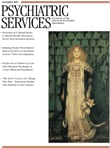What You Have Left: A Novel
Will Allison's What You Have Left , his first novel, chronicles the life struggles and resolutions of three generations of a South Carolina family. Allison places the majority of this novel in his hometown of Columbia, South Carolina. Primarily a short-story writer, he creates his chapters as sections of perspective from his three primary protagonists. Holly is raised by her grandfather Cal after the death of her mother and abandonment by her father. Wylie is the father who abandons Holly following his wife's death and was further distanced from his daughter by his father-in-law. And Lyle is Holly's fiancée and Cal's right-hand employee.
Cal, despite being a secondary character, provides the link among the major characters and is the most interesting subject in the book for psychiatric professionals. The biopsychosocial aspects of his suicide and the effect it causes on the other characters provide an alternate perspective—which limits the psychological part of the biopsychosocial triad—on the causal relationship of behavior and emotion.
Cal's suicide results from a preemptive strike against illness rather than an illness itself. There are no signs or symptoms of depression that typically precede a suicide attempt; rather it takes place to prevent the effects of dementia brought on by Alzheimer's. Cal's biological predisposition for dementia forces him to face the possibility of living his latter years like his predecessors. Instead, he chooses what he believes to be a more dignified death. The timing of his suicide comes after he has set the long-term safety of his granddaughter into motion. Holly has already been abandoned by her father and gone through the death of her mother, and her well-being prevents Cal from attempting suicide earlier. He must first provide her shelter and support. The former is done by rejuvenating his dairy farm and the latter by expediting her relationship with Lyle. Once Cal accomplishes this, his familial obligations are met.
Cal's death reverberates through the remainder of the novel. His proactive approach to problem solving contrasts with the remaining characters who remain complacent in their inertia. Holly struggles to find a substitute for gambling, Lyle struggles to maintain employment, and Wylie avoids the death of his wife by running away from his daughter and drinking himself into dementia. Cal's death allows the other family members to take action, albeit as a way of defying him. Holly actively seeks her father. Wylie confabulates his attempting to meet Holly during his bout with Korsakoff's syndrome. Lyle protects Holly in her reckless periods rather than argues with her, which Cal had done with her mother. The indirect actions against Cal physically manifest when Holly and Lyle burn Cal's belongings in effigy at the dairy farm, without any precipitating factor.
What You Have Left exemplifies a scenario in which a suicide presents more than a suicide and more than an end point of psychological depression. For Cal, it creates an opportunity to defeat his biological predisposition for dementia. Socially, it breaks the stagnation of the remaining family members. For psychiatric professionals, it provides an example in which a psychiatric outcome does not result from psychological factors.



